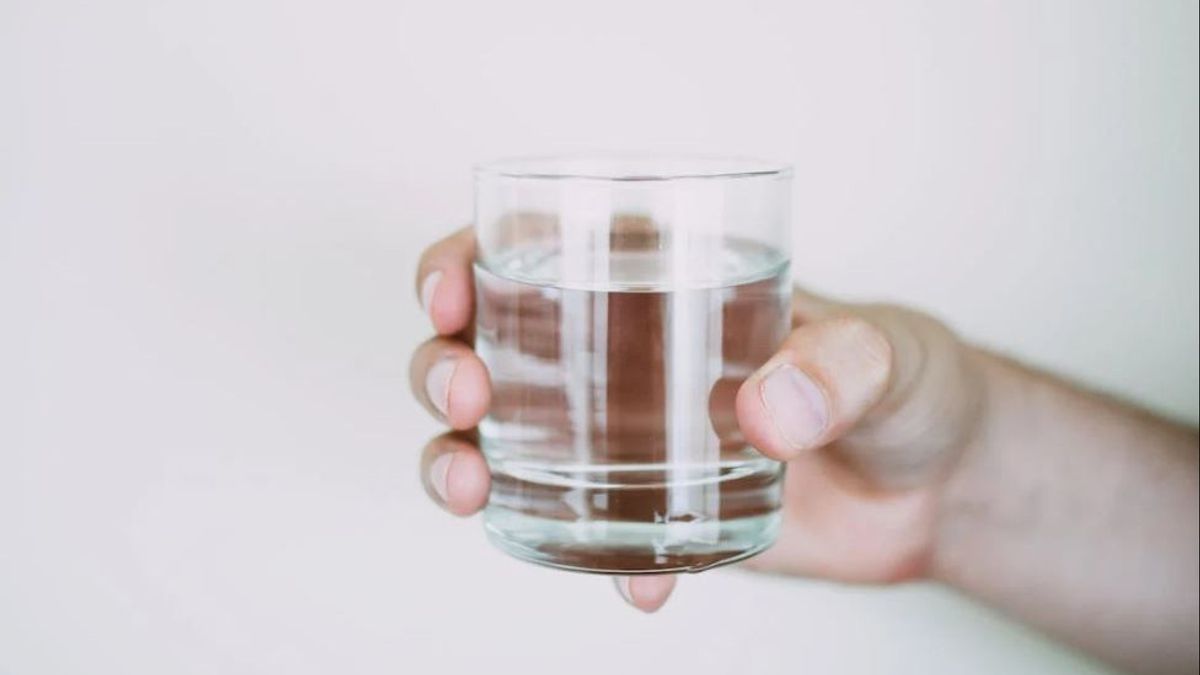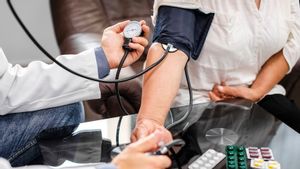JAKARTA - lack of fluids is usually experienced by people who are fasting. This is because the supply of fluids in the body is not as usual.
However, this turned out to be overcome. Clinical nutritionist Dr Eva Kurniawati M. Nutri Sp.GK provides tips so that the fluid needs of people who fast during Ramadan can be met.
He said the lack of fluids during Ramadan could be overcome by dividing drinking time into eight different times.
These eight times were one glass each after waking up the sahur, after the sahur, when breaking the fast, after the Maghrib prayer, after dinner, after prayer, after tarawih prayer and before bed.
"To add liquid, try to cook soupy vegetables when suhoor and open, and the soup is consumed all of them, by eating the soup we increase the intake of fluids for the body as well," Eva said, as reported by Antara.
A person is advised to get enough water every day, it is important to prevent dehydration. Dehydration is a condition that can cause the mind to become unclear, cause mood swings, cause the body to get hot, and cause constipation and kidney stones.
According to the United States Centers for Disease Control and Prevention (CDC) water does not have calories, so it can help regulate weight and reduce calorie intake if it becomes a substitute for calorie drinks, such as sweet tea or soda.
The Ministry of Health recommends adults drink about eight glasses of water measuring 230 ml per day or a total of two liters. Apart from drinks, food can also provide a liquid intake in the body of about 20 percent.
Liquids from food are mainly obtained from fruits and vegetables, such as spinach and watermelons which contain 90 percent water.
Regarding efforts to prevent dehydration during fasting, Eva also advises people to avoid caffeinated drinks during breaking the fast and sahur because they have a diuretic effect that can increase the risk of dehydration.
More about caffeine, nutrition expert Dr. Rowaidah Idris told Arab News once suggested people try to reduce caffeine intake a month before Ramadan.
However, if you can't do it, you drink enough water during sahur and break the fast, get enough sleep and reduce sugar intake and avoiding high-fat foods can help overcome symptoms of dependence.
Nutritionist Anjali Chawla says exercising can help a person reduce caffeine, as this activity makes her sweat, release adrenaline just like coffee and will make her feel alert.
Both Idris and Chawla agreed to drink coffee during or after breaking the fast and sahur would make a person experience insomnia and dehydration which would be a challenge during fasting.
Both also advise the public to reduce caffeine intake not only during Ramadan but in the following months. Excessive caffeine intake can lead to various side effects both mentally and physically.
The English, Chinese, Japanese, Arabic, and French versions are automatically generated by the AI. So there may still be inaccuracies in translating, please always see Indonesian as our main language. (system supported by DigitalSiber.id)













